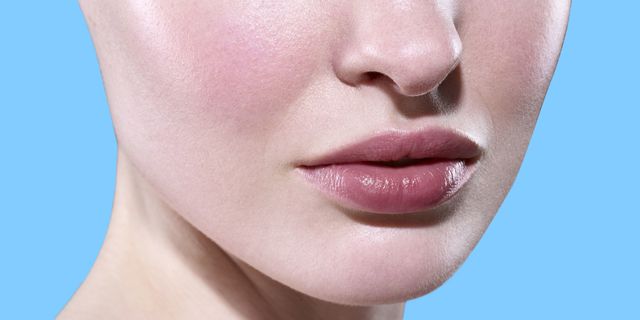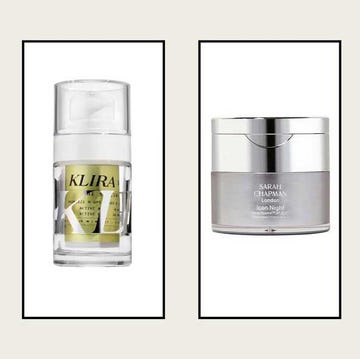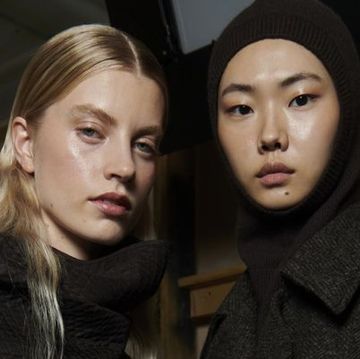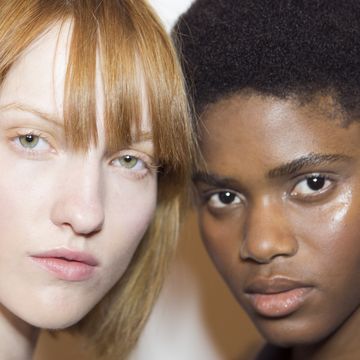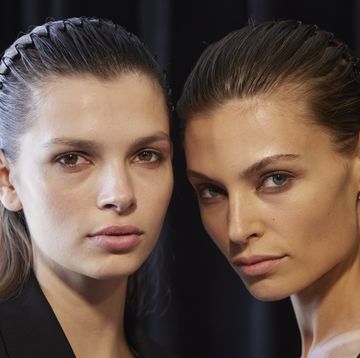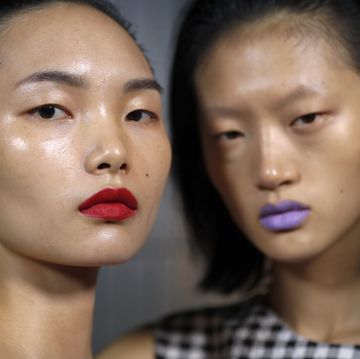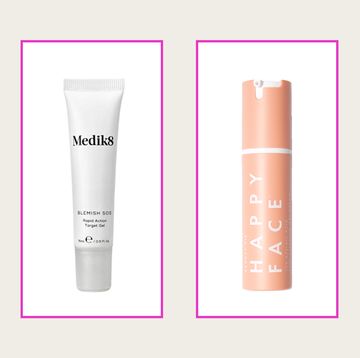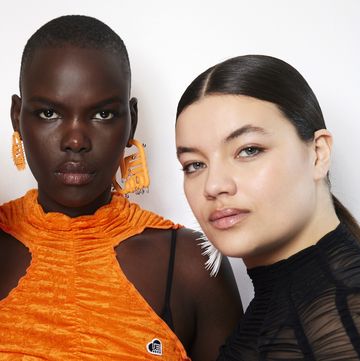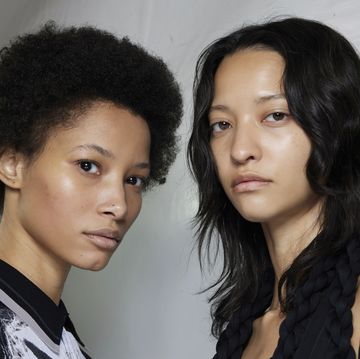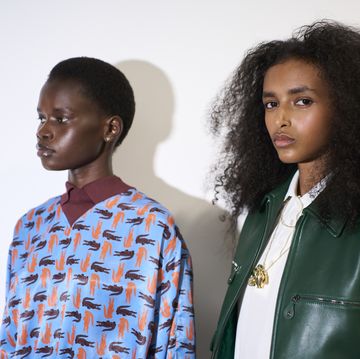Last week, Lena Dunham published an essay in her Lenny Letter discussing her "journey to vanity" when she discovered she had a newfound skin condition. Dunham details the appearance of this following "a course of steroids to treat a massive flare of joint pain and instability," she writes. "It led to rosacea's appearing overnight, making me look like a scary Victorian doll, two perfect pink circles painted on her porcelain face." Yes, a scary Victorian doll.
For those of you who are unfamiliar, rosacea is a skin condition affecting over 16 million Americans. It's estimated that 95 percent of rosacea patients had known little or nothing about its signs and symptoms prior to their diagnosis, and it is most frequently diagnosed in women. It's known to cause redness, flushing, bumps, pimples, and visible blood vessels. As of 2017, there is still no cure—only "control." And for the past 22 years, I've lived with it.
Rosacea has always been a subtle, yet outwardly facing part of my identity—one I've never truly come to terms with. Growing up I would always be asked, "Why are your cheeks so red?" Or "Why are you blushing so much? Are you embarrassed?" No Karen, I have rosacea, my skin is overly sensitive to the sun. Of course I never said that—I simply shrugged it off.
With each passing year, the condition would increasingly succumb to the greater half of my cheeks, and ever-so-slightly I found myself making slight alternatives to my beauty routine. Instead of putting my hair in a ponytail, I would choose to bear the South Florida heat by keeping my hair down—anything to hide my rosy—or as Dunham's mother recounts, "Very '90s editorial fashion!"—cheeks. Covering it wasn't a cure, but it was my cure. And it made me forget I even had a skin condition to begin with.
Hearing Dunham detail her "long, slow hit" on her self image made me wonder about my own self image all these years, and why I had been so eager to cover up my cheeks in the first place—especially for something I didn't think about daily. My initial reaction was anger, wondering how Dunham could personify this skin condition millions of people are faced with into this horrible, hopeless beast—especially when there are a variety of levels (and emotional/psychological affects) associated with it. But I soon realized that she personified the condition in a way I had avoided for so long—it did make me insecure for many years. And that's something I'm still working on.
But having rosacea doesn't nearly affect everyone's lives in the same no good, horrible way Dunham portrays it. And it's certainly not the end to achieving beautiful skin.
Though it most definitely sucks not knowing whether your cheeks will turn a darker shade of red when you walk outside or when a cute guy crosses the corner, there are ways of treating rosacea and it is different for everybody. Whether that's getting prescribed with certain creams and medications from your dermatologist to soothe irritation, opting for laser treatments, taking my route and choosing to use cover up as a buffer, or simply being your most authentic self and showing off your beautiful skin, you can develop your own "cure" for rosacea even if it isn't one in a medical book. It all begins with educating yourself on the skin condition, and talking to your dermatologist to determine the best course of action for your lifestyle.
